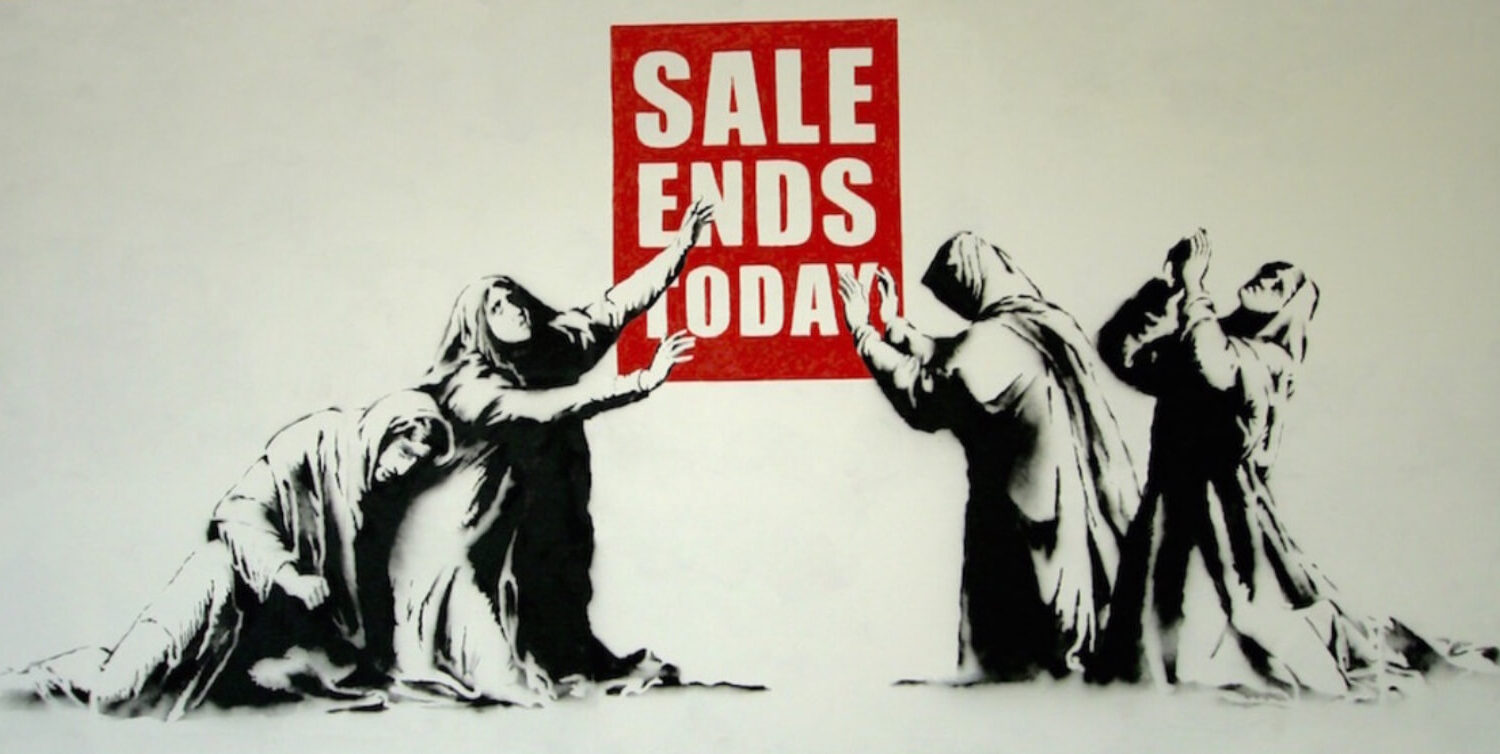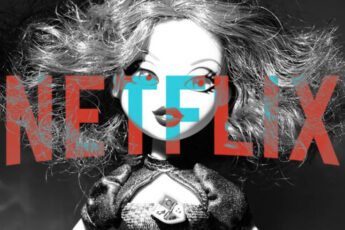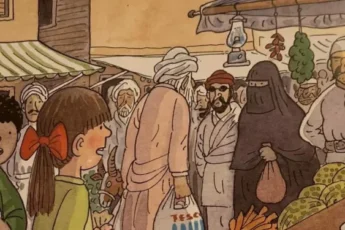
WATCH OUT FOR ‘BRAND RAMADAN’…
The message read: “Brands would be crazy to miss out on the opportunities Ramadan provides. Muslim consumers spend big in Ramadan and if you want to capture your rightful share of that market, this is how you engage…”
It would be naïve to think that consumerism hasn’t impacted our spiritual practices and aspirations. It is also no secret that capitalist societies thrive on making a commodity out of anything – apparently even out of a month of deprivation and scaling back. Ramadan fashion sale! Ramadan soap opera special! A Ramadan buffet so extravagant you will sleep past Tarawīḥ and Fajr!
Those eager to tap into the Muslim pound are looking for business growth opportunities through the UK’s four million Muslims. And they plan and research the Muslim consumer market with careful precision too.
Ogilvy is one of many advertising, marketing, and public relations agencies who have their sights set on tapping into the behaviours of 1.8 billion Muslim consumers worldwide today. Their operations (often with the aid of Muslims in-house) are slick in coming up with riveting and original insights such as, “Muslims are not afraid to walk away from brands who openly support the state of Israel,” and, “Muslims consume differently from those of other religions with particular concepts such as “ummah”, the notion of a wider global Islamic religious community, holding great sway.” (2)
Through a mix of observing and recording consumer habits – and Muslims in-house to give them an insider’s perspective – these companies have eagerly identified Ramadan as a key business driver and an opportunity that cannot be missed to tap into Muslim spending.
All the jargon associated with these behaviours – ‘consumer’, ‘target market’, ‘business growth opportunities’ – instinctively feel like not only the antithesis to genuine spirituality, but almost double-speak.
Words are strange things. To be called a ‘consumer’ implies you are pouring some provision into your mortal vessel. Any good branding agency knows they are selling you an experience and aspiration, not a product. So, if we are buying into the saccharine fantasies that others have pre-empted and packaged up for us in advance, are we not the ones that are being consumed?
While the tills ring up in appreciation for Ramadan, how have we ignored the gaping irony that everything this month stands for flies in the face of indulgence, spending, excess, and the material world?
The children need the hype…but keep it in its place
Anybody who has been around young children today understands we need to create a buzz and excitement around Ramadan for their sake. When sparkling Christmas lights, golden Easter egg chocolates, and even exciting dress-up costumes for World Book Day are calendar staples of the year, our own Muslim festivals cannot be dry and dull in comparison. Muslim businesses have made exceptional strides in creating their own Ramadan-themed décor, children’s books, and activity packs – including adorable crescent-shaped cookie cutters and piñatas.
Ramadan needs to be made memorable for this generation of children. There is nothing blameworthy in building this hype. However, like everything, it must be kept in its place. This means:
- Alongside the Belgian chocolate countdown calendars, families should focus on speaking to their children about the concept of fasting. What is the relationship between denying our bodies’ nourishment and being in a closer state to Allāh? What is taqwa, and why is Ramadan prescribed as one of the vehicles to achieving it?
- Discuss the major, exciting, and decisive events of huge Islamic significance that took place in Ramadan. This is the month when the Qur’ān was first revealed, the Battle of Badr was won, the conquest of Makkah took place, and our mother Khadījah left this world. It was also the month were Ṣalāḥ al-Dīn al-Ayyūbi defeated the Crusaders and the Mongols were defeated for the first time in 658 AH. Ask them if they can imagine what it took to live those events while fasting? Get them to consider the struggle they go through now in comparison – with spring in the air and lockdown easing – and how they would feel experiencing their Ramadan in any of those situations.
- Make the gatherings of suḥūr, iftār, and communal prayer the enduring memory for children experiencing Ramadan (even those who are not fasting yet). Silencing gadgets and proactively increasing worship should be as palpable as the banners, streamers, and balloons at home.
- Children should have their own aims for Ramadan, as we do. This can be whatever is achievable and encouraging for a child, whether it is to memorise a sūrah, learn the Names of Allāh, or fast a specific number of days. Ramadan should be a time for children to set their own objectives for religious and spiritual growth so that they come to Eid feeling firmer in their īmān as a result of the month that has gone by.
Be smart about the (sparkly!) rabbit holes ahead…
Christmas and Easter are just two clear examples of what happens when once-sacred traditions become co-opted by consumerism and blown open through secular capitalism. It hardly takes any time for them to be stripped of their essence and be sold back to us as a ‘hallmark holiday’ complete with bells and whistles. Ramadan is a month that mandates abstinence, and the highest degree of fasting involves all your inner and outer senses becoming engaged in stripping away the material and excess. The power of Ramadan is in its ability to peel back the layers of distraction, indulgence, and frivolousness.
Be vocal and firm in preserving the essence of Ramadan. The core of the month is to dim the carnival vibes, lower the volume, detach from electronic devices, put a break on hyper-stimulation, and drastically simplify and bring silence to ourselves. This must be fiercely guarded, because surely a bigger victory for Shayṭān would not be that Muslims abandon Ramadan altogether, but that we morph it into a month that is unrecognisable from its original aim: to attain taqwa.
In a culture where nothing is immune from being turned into a commodity, it is a personal and communal imperative to protect and preserve the sacred essence of Ramadan. So, as we do up our houses and get the festivities ready, let us prepare our hearts and nurture our souls with just as much care this Ramadan.



